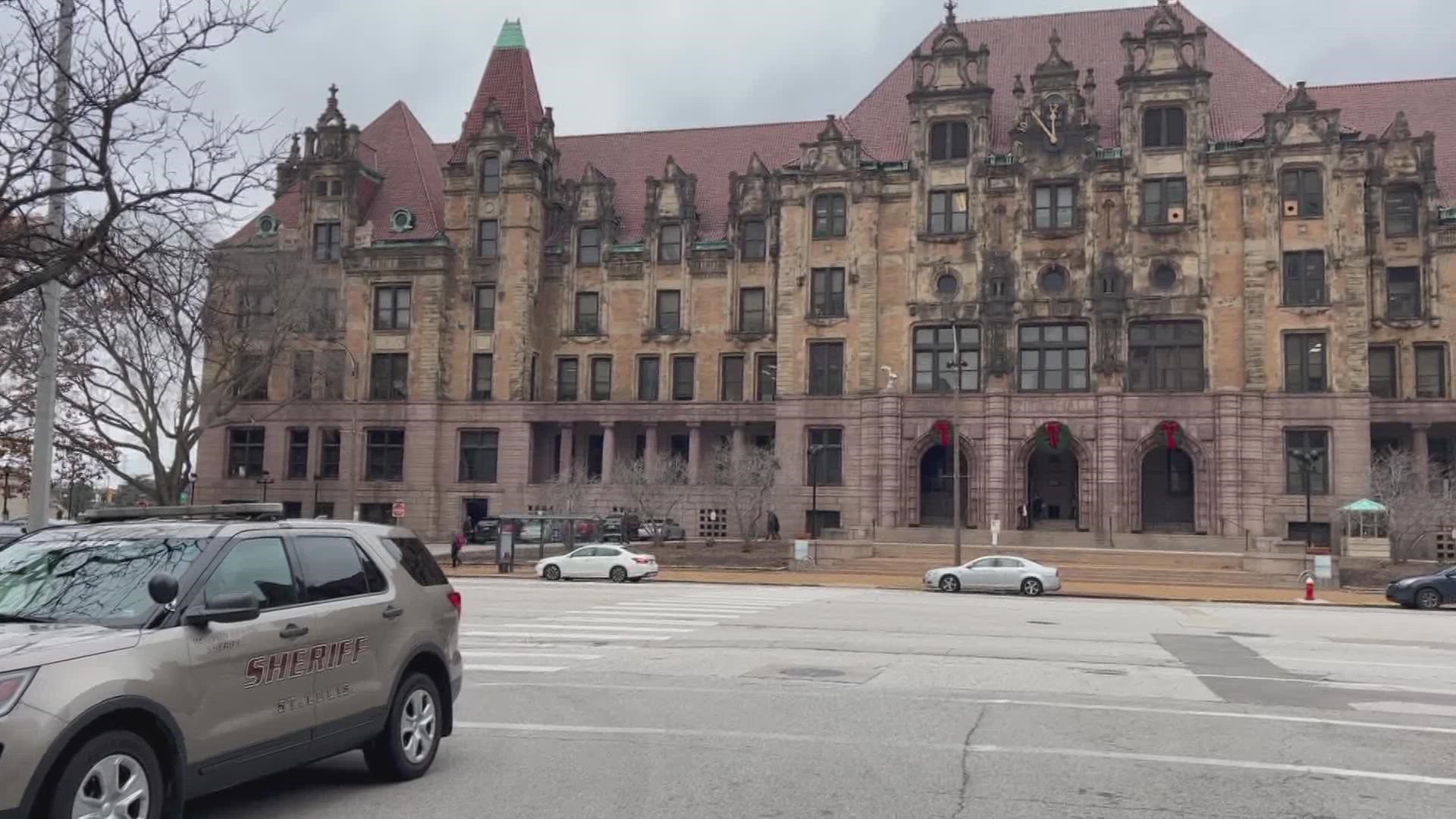ST. LOUIS, Missouri — Election victories for progressive politicians in top local government posts have revived preliminary talks of a potential merger between the city and county of St. Louis.
Both Megan Green, the newly inaugurated President of the Board of Aldermen, and Sam Page, the recently re-elected St. Louis County Executive, have signaled their support for kickstarting the discussion phase of consolidating some aspects of local government.
"It’s a lot of change for our residents to consider," Green said on Monday during her inaugural address. "I’m confident that by working together, we can overcome institutional inertia and historic suspicions and get it done."
Page referred to the obstacles besetting the long-awaited, often-attempted city-county reunion as "the 150-year-old problem," but added an optimistic note.
"I think there's always a chance that we can resolve that," Page told reporters the day after he secured a full four-year term.
"We know that realigning services would save a lot of money," he said. "But we have to go into the details of that we under need to understand the details of that."
The city-county split, and the discussions to reunite, date back to the 19th century and pre-date St. Louis' 'heyday' as the host of the 1904 World's Fair.
"The reason they initially separated was because St. Louis City didn't want to fund the infrastructure of St. Louis County," Municipal League of Metro St. Louis Executive Director Pat Kelly said about the 1876 divorce.
"The [city] didn't think that they should be reaching that far out into the rural areas in order to provide services and funding, but it wasn't even within 10 years after they did that, they realized they were being constrained and they wanted to expand."
"At first, there wasn't a mechanism for them to actually come back together and that's what created the constitutional Board of Freeholders process," he said.
Under previous mayors Francis Slay and Lyda Krewson, the merger process began again as a proposed amendment to the Missouri state constitution, but the 'Better Together' plan faltered, in part under the weight of a federal corruption indictment that felled former County Executive Steve Stenger.
Under that proposal, Stenger would've become the "king of St. Louis," several sources recalled. His pay-to-play scheme soured public sentiment, and the organizers rescinded their proposal before it could suffer statewide defeat at the ballot box.
Similar attempts to alter the state constitution failed in 1930 and 1962. After the 2019 attempt was withdrawn, local officials went back to the drawing board to appoint members to the Board of Freeholders, but former Board of Aldermen President Lewis Reed rejected some of the mayor's appointees.
Now that she's taken over his post, Green said they should start from scratch.
"We must implement a Charter commission, and should the mayor choose to pursue it, confirm new freeholders to improve city government and encourage regional cooperation," Green said in her inaugural address.
The mayor's chief of staff, Jared Boyd, said the administration is open to talks on a smaller scale, but said a "full-scale merger" is "off the table to start with."
"Community building happens at the speed of trust," Boyd said. "Any process or topic would have to be discussed in a transparent manner that both communities -- St. Louis City and St. Louis County -- could both understand and get buy in for."
After Page and Green's comments breathed new life back into the consolidation discussion, Jones' office sought to recalibrate public expectations of a swift solution.
"There have been no formal conversations that have occurred between our office in the County Executive's office on the Board of Freeholders process," Boyd said on Tuesday afternoon. "The city and the county need to work on strengthening our regional muscles before we talk about any wholesale mergers or any large-scale consolidation."
Kelly, the former mayor of Brentwood, encouraged leaders to tackle the issue, despite its many failures in the past.
"A lot of times in government, they're too short sighted," Kelly said.
He described the Board of Freeholders as an independent body that can solicit public input.
"If they did that, I think the number one issue facing both city and the County is crime," he said.
"If you said St. Louis City coming into the county as a municipality, I think that would be a hard sell," Kelly said. "Because I just don't think there's an appetite for that type of merger right now."
However, he sees an opening for a newly appointed Board of Freeholders to go back to the drawing board and propose some other path forward that doesn't include an all-out merger.
He suggested roping the city into the county could provide opportunities to cut costs and divide labor.
"I wouldn't call that a merger," he said. "Bringing St. Louis City into the county as a municipality isn't necessarily a merger. A merger would be to combine the city as part of the basically the county governments together, opposed to the municipal aspects of it."
If the city and county both appoint a new slate of panelists on the Board of Freeholders, that would start a one-year clock for them to develop a full proposal. Then voters in the city and the county would vote on that plan before it could take place.

